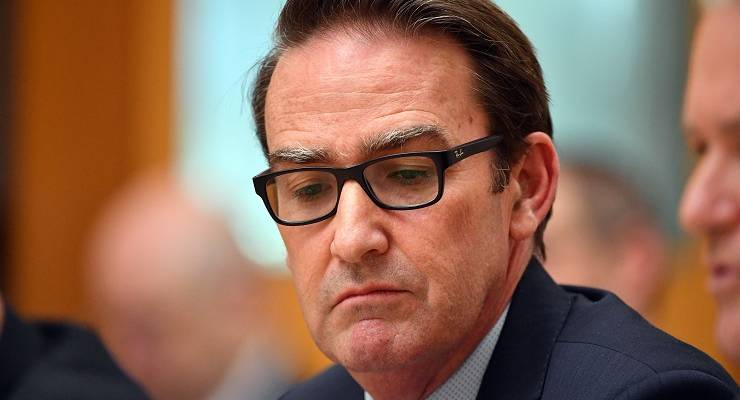
The Treasury officials who work tirelessly to produce the federal budget each year don’t often get a lot of credit.
They are the ones grinding policy proposals through economic models to determine what it all means for GDP growth, the unemployment rate, and the budget bottom line — and writing cameos in the budget papers about what tax policy means for Priya who “is a civil engineer working in regional Australia” earning $80,000 a year.
Those details are extremely important. But so, too, is the overarching narrative of the budget — the government’s “fiscal strategy”. Credit or blame for that typically goes largely to the treasurer, and to a lesser extent the finance minister. And economists assessing this year’s budget should be largely positive about the shift in fiscal strategy. Gone, it seems, are the “debt and deficit” bumper stickers and the back-in-black coffee mugs.
This budget has ushered in a Liberal Party fiscal strategy of prioritising economic and jobs growth. It won’t “pay down” the debt incurred during the pandemic — it will shrink it as a share of GDP by growing the economy. If this works out, there is one person who deserves credit as an effective co-author of the strategy: Treasury boss Steven Kennedy.
Pandemic response
The government’s fiscal response to the pandemic was large, decisive and very effective. The reason unemployment didn’t get nearly as high as forecast, and has come down so quickly, is because of programs like JobKeeper and JobSeeker.
In the early days of the pandemic in Australia it seemed inconceivable that a government that built its fiscal brand on the “debt and deficits” mantra of Tony Abbott would spend tens of billions of dollars on such measures.
When I wrote in early March last year in The Australian Financial Review that we should close the international border immediately, Prime Minister Scott Morrison was still publicly boasting about “going to the footy” that weekend. That’s pretty far away from closing the border, understanding the importance of lockdowns to get testing and contract tracing up and running, and pumping billions of dollars into the economy.
But once it became clear that border closures and state-level lockdowns were necessary, the question of what fiscal support the government would offer became a live issue. It’s hard to know from the outside what happens in a papal conclave, but some combination of Treasury and Frydenberg convinced Morrison to act decisively on JobKeeper and JobSeeker.
Given Kennedy’s role and background, all signs point to him as the key advocate for those policies, crucial in convincing Frydenberg. Kennedy, a nurse by training and holding a PhD in economics combines empathy and quantitative rigour to an unusual degree.
Even Treasury’s estimate of the $4 billion-a-week cost of nationwide lockdowns was a key piece of the puzzle in making the case for fiscal support to fill that output gap until the public health crisis was under control.
The permanent pandemic
Despite Australia’s world-class 2020 COVID response, it became clear early in 2021 that we were bungling the vaccine rollout. We had put most of our vaccination eggs into two baskets: the University of Queensland vaccine that was pulled, and the AstraZeneca vaccine with its host of issues — from comparatively low efficacy, to not working against the B.1.351 variant, to blood clots.
This, and the continued spread of COVID in places like India, should have been clear before COVID.
The Australian economy was weak in 2019. Real wages growth had been anaemic since 2013, real GDP per capita was barely positive (and sometimes negative), and unemployment was stubbornly high. With the Reserve Bank (RBA) using effectively all the monetary policy tools it can, that leaves fiscal policy to stimulate the economy.
Of course, many people — including RBA governor Philip Lowe — had been making the point about the importance of fiscal policy for a long time. But in the lead-up to this budget the government could no longer ignore the need. With Treasury no doubt forecasting budget red ink for years to come, the government needed to show that something positive would come out of it.
For me, avoiding a second Great Depression would be a pretty good pitch. But it’s always hard to claim credit for avoiding a disaster that didn’t happen. Just ask Barack Obama and his post-financial crisis experience.
What was required was not just being accepting of budget deficits, but showing how smart fiscal spending, at scale, could drive unemployment down and growth up. That is all tied together by understanding that when the cost of servicing debt is lower than the rate of growth in national income, government debt shrinks as a share of the economy.
Frydenberg deserves enormous credit for the shift in fiscal strategy. But it is unlikely he could have done it without Kennedy and his department providing the economic framework, and the painstaking task of showing how these measures would flow through the economy.
What has eventuated looks like the result of a crucial partnership between Frydenberg and Kennedy — one which has produced a set of economic forecasts in this budget that look more realistic than any in decades.
And that, more importantly, might finally get the sluggish Australian economy moving again.
Richard Holden is professor of economics at UNSW Business School, and president-elect of the Academy of the Social Sciences in Australia.








They’re still not spending the money correctly, can’t get away from that.
I thought everyone knew that it was Greg Combet and Sally McManus who put forward the idea of wage subsidies and raising ‘Newstart’.
Of course, by the time Frydburger got hold of it and .introduced Jobkeeper and Jobseeker, he didn’t even do that correctly. So we now have billions of dollars wasted on those companies and businesses who didn’t need it in the first place…and back to the future with Jpbseeker returned to below poverty rates.
I’m no economist, but it makes me sick to read the number of parasitical commenters heaping praise on this putrid government, when all they have done is WRECK this country…and they couldn’t give a sh+t about those who need help the most!
First of all the author forgets McManus and Labor who came up with the plan of wage subsidies and spent a long time trying to convince Morrison that it was the way to go.
I credit Morrison’s survival instinct with his agreeing to that plan and with this joke of a ‘recovery budget’. Not much ‘smart fiscal spending’ there. Just some money (as little as he thought he can get away with) for the areas and people that caused him grief in the last few months. If that’s not an election budget aimed at saving his a*** then I don’t know what is.
Pragmatism currently reigns, but lurking in the shadows is ideology. It’s notgone, it’s just waiting. SmoCo and Joshy have not had epiphanies…
Ah…Mr Holden, you are almost there: now you can get behind a Job Guarantee, to eliminate un/under-employment in Australia forever. Even Ross Gittins has seen the light:
ROSS GITTINS: Funding the budget by printing money is closer than you think
(Question: where did the federal government find the necessary $billions, in April 2020?)